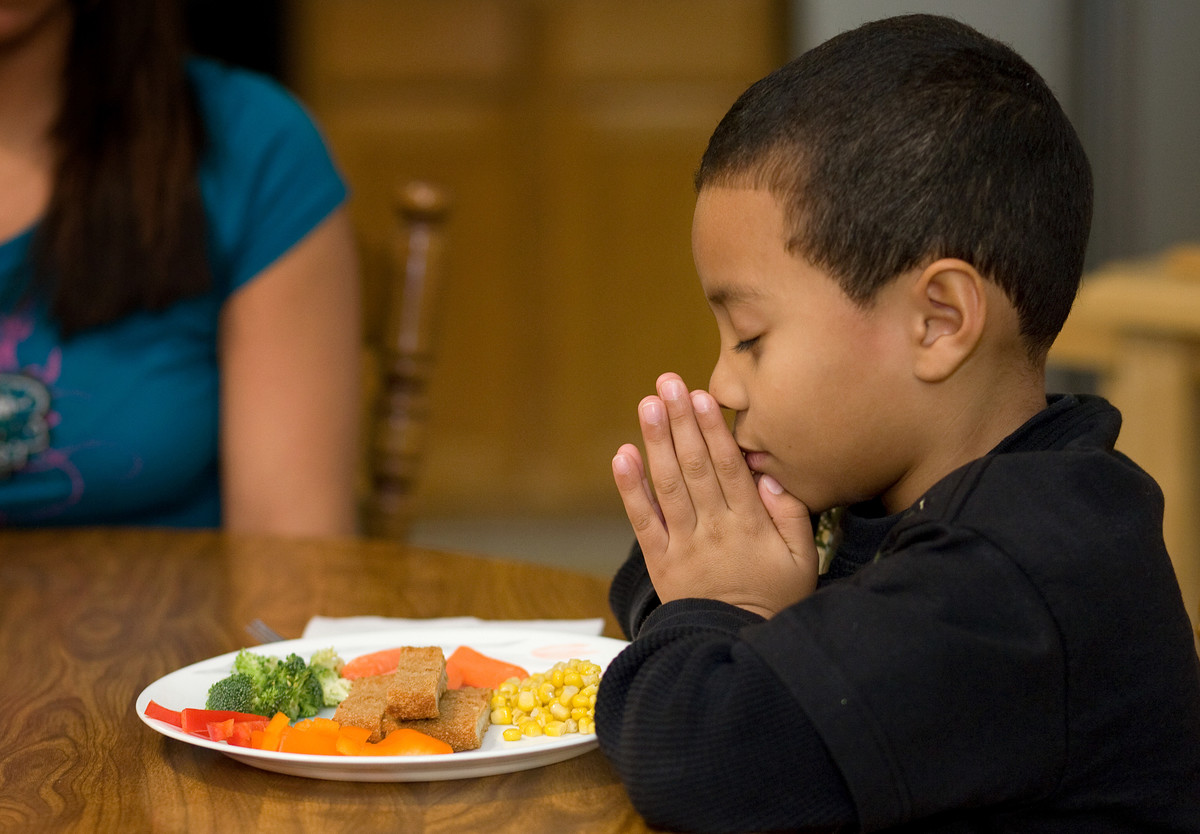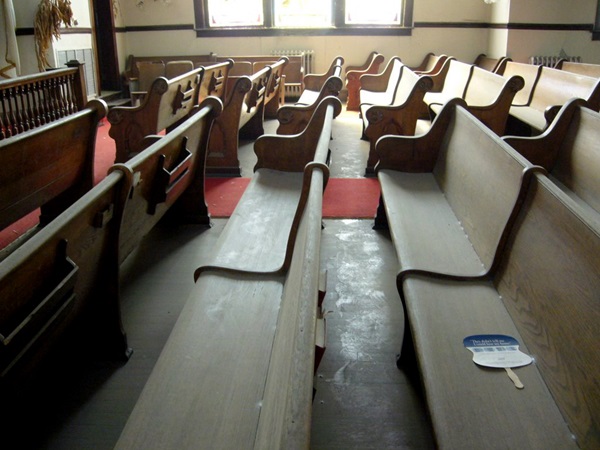A menudo uso el Book of Common Prayer (BCP) para mejorar y guiar mi vida espiritual. El BCP contiene Oficios Diarios que incluyen una liturgia para guiarte a ti o tu comunidad en la mañana, al medio día, en la tarde y antes de irse a la cama.
Hay una palabra hebrea para esto: qēbāʽ (o keva) que básicamente significa “regularidad” o “estructura”. Le enseña a uno cómo navegar a través de una oración, para luego moverse de una oración a otra, y de una lectura a otra a lo largo del servicio. Imagínese algo similar a un orden de culto del servicio del domingo.
Al usar el qēbāʽ corremos el peligro de estancarnos en la estructura: en el cómo y el cuándo de hacer las cosas. Lo que hacemos se puede convertir en una rutina automática, en algo que hacemos porque siempre lo hemos hecho así, como orar antes de comer. Algunas veces, el hábito de dar gracias antes de comer llega a ser más importante que el dar gracias. El Padrenuestro también se puede convertir en una rutina si repetimos las palabras sin pensar en lo que decimos. También vamos a la iglesia más como un hábito que para adorar. A veces repasamos el orden del culto para ver lo que ya hicimos y mirando cuánto queda. ¿Soy yo el único que lo hace?
En la vida es fácil estancarse en el qēbāʽ; es fácil confundir una rutina con un compromiso.
Pero hay una forma de escapar esta confusión entre rutina y compromiso. Podemos zafarnos del qēbāʽ.
Hay otra palabra hebrea para esto: kāvanāh (o kavana) que significa “intención”.
El qēbāʽ y el kāvanāh son buenas compañeras. Formato y estructura son importantes. De otra forma, se produce el caos. Pero sin la intención, todas nuestras estructuras son inútiles.
Un amigo fue enviado a pastorear una iglesia que durante el culto pronunciaba el Padrenuestro. Pero al hacerlo, la gente se paraba, daba vuelta 180 grados, recitaban el Padrenuestro, se daban vuelta otra vez y se sentaban. Mi amigo jamás había visto algo semejante, pero para la congregación era lo más natural. Después de varios domingos, sintió que tenía que averiguar el porqué del rito. Empezó a preguntarle a la gente, pero nadie sabía por qué lo hacían. Sólo le decían: “Siempre lo hemos hecho así”.
Pasados dos meses, este pastor visitó la casa de una antigua miembro de la iglesia que estaba enferma. Durante la conversación, mi amigo le preguntó acerca del ritual conectado al Padrenuestro. La hermana le contó que en la década de los 70 –cuando no había PowerPoint ni proyectores– la iglesia experimentó un período de gran crecimiento. La iglesia recibía nuevos miembros y era visitada por gente que jamás había asistido a una iglesia. El pastor de aquel tiempo no quería que nadie se sintiese desconectado durante el culto. La única cosa que la iglesia repetía cada domingo como un solo cuerpo era el Padrenuestro. El pastor pensó que mucha gente no cómo sabría buscar en el himnario para hallar el Padrenuestro. Así que, comisionó a un equipo de miembros a que crearan una grande y hermosa pancarta con el Padrenuestro, la cual colgaron en la parte trasera de la iglesia. De modo que, cada domingo el pastor le pedía a la iglesia que se pusiera de pie, se diera vuelta y leyeran juntos el Padrenuestro, asegurando así que todos pudiesen leer la oración y ser parte del culto.
Con el tiempo la pancarta se dejó de usar, pero la rutina se mantuvo. Pastores fueron y vinieron, y la pancarta ya no se ha usado por más de veinte años. Con todo, la congregación todavía se da vuelta para recitar el Padrenuestro porque es lo que siempre han hecho, incluso si ya no saben por qué. Esta es una congregación que se olvidó de la intención (kāvanāh) y se quedó empantanada en la rutina (qēbāʽ).

¿Hay alguna parte de su vida en que usted se haya quedado estancado en la rutina de repetir algo sin pensar? ¿Hay alguna parte en su vida en la que usted ha confundido la rutina con el compromiso?
Algo que hago para acordarme de mi kāvanāh –mis intenciones– es pregúntame “¿Por qué?” ¿Por qué esta oración es importante para mí? ¿Por qué esto es tan significativo para mí? ¿Por qué esta rutina me llena tanto?
Esto me ayuda a tratar de ser intencional en mis oraciones, rutinas diarias, vida espiritual, mi vida. El empezar siempre con el “¿por qué?” me impulsa a estar consciente, decidido e intencional en mi vida. Esto es una forma realmente maravillosa de no dejar que las cosas se estanquen y se pongan añejas.
Ser intencional es más importante que nunca ahora en este período de distanciamiento social. Tengo que ejercer una fuerte determinación para mantenerme conectado con otras personas. Me tengo que repetir que aunque estamos separados físicamente, todavía podemos tener una vida social. Así que, envío emails y mensajes de texto, y hago llamadas, y me reúno con gente a través de Zoom. Trato de hacer todo lo que pueda para mantenerme conectado con la vida de otras personas y así evito el dar por sentado mi interacción social.
Como plantador de iglesia que todavía no tiene iglesia, no tengo la oportunidad de conducir servicios de adoración por internet. Para ayudar a que la gente se mantenga conectada con mi emergente comunidad, he creado videos en YouTube. También mantengo un diario donde registro lo que pasa y mis oraciones. Mi diario es una mezcla de lo que pienso y de las oraciones que hago. El “por qué” detrás de todo esto es mantenerme conectado con Dios y con la gente, para descubrir qué avenidas podría usar para ser más útil al pueblo de Dios.
Espero que usted pueda ser intencional en la forma en que vive durante este período y en el futuro.
Joseph Yoo se mudó de la costa oeste para vivir feliz en Houston, Texas, con su esposa e hijo. Sirve en Mosaic Church, Houston. Visite josephyoo.com.



